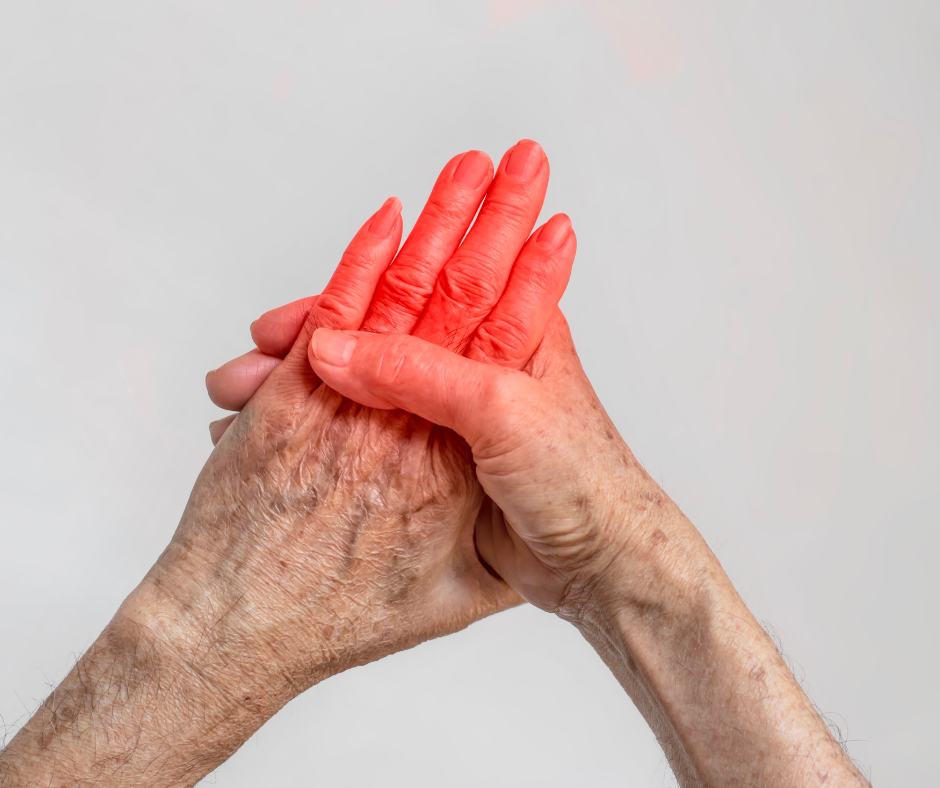24/7 online booking

Can Osteopathy Help Arthritis? A Holistic Approach to Managing Joint Pain
Arthritis is a common condition that affects millions of people, causing pain, stiffness, and inflammation in the joints. It can be a debilitating condition, impacting everyday activities and overall quality of life. While there is no cure for arthritis, various treatments can help manage the symptoms and improve joint function. Among these, osteopathy offers a holistic approach to alleviating the discomfort associated with arthritis. But can osteopathy really help with arthritis? In this blog, we’ll explore how osteopathic treatment can support those living with this condition.
Understanding Arthritis
Arthritis is a broad term that encompasses over 100 different types of joint diseases. The most common forms are:
- Osteoarthritis: Often referred to as "wear and tear" arthritis, osteoarthritis occurs when the cartilage that cushions the joints breaks down over time, leading to pain, swelling, and reduced mobility.
- Rheumatoid arthritis: This is an autoimmune disease where the body's immune system attacks the lining of the joints, causing inflammation, pain, and eventually joint damage.
- Psoriatic arthritis: Linked to the skin condition psoriasis, this type of arthritis causes joint pain and swelling, often accompanied by skin rashes.
- Gout: A form of arthritis characterised by sudden, severe attacks of pain and swelling in the joints, usually due to an excess of uric acid in the blood.
Regardless of the type, arthritis can significantly impact a person’s ability to move and function comfortably. Traditional treatments often include medication, physical therapy, and in severe cases, surgery. However, many people are also turning to complementary therapies like osteopathy to help manage their symptoms.
How Can Osteopathy Help with Arthritis?
Osteopathy is a form of manual therapy that focuses on improving the body’s structure and function, particularly the musculoskeletal system. For those with arthritis, osteopathy offers a non-invasive, drug-free approach to managing pain and enhancing joint mobility. Here’s how osteopathy can be beneficial:
1. Pain Relief
One of the primary benefits of osteopathy for arthritis sufferers is pain relief. Osteopaths use gentle, hands-on techniques to reduce muscle tension, improve joint mobility, and alleviate the pressure on inflamed joints. Techniques such as:
- Soft tissue massage: This helps to relax tight muscles around the affected joints, which can reduce pain and improve movement.
- Joint mobilisation: Gentle movements of the joints can help maintain or increase their range of motion, which is often reduced in people with arthritis.
By addressing the musculoskeletal components of arthritis, osteopathy can help to alleviate some of the discomfort associated with the condition.
2. Improving Joint Mobility
Arthritis often leads to stiffness and reduced mobility in the joints, making everyday activities more challenging. Osteopaths work to enhance joint function through specific techniques designed to:
- Improve flexibility: Gentle stretching and mobilisation of the joints can help improve flexibility, allowing for better movement and less stiffness.
- Enhance joint alignment: Poor joint alignment can exacerbate arthritis symptoms by placing additional strain on the affected areas. Osteopathic techniques aim to realign the joints and improve their function.
By improving joint mobility, osteopathy can help you maintain independence and continue with your daily activities with greater ease.
3. Reducing Inflammation
Inflammation is a key factor in arthritis, particularly in conditions like rheumatoid arthritis. Osteopathy can help reduce inflammation by promoting better circulation and lymphatic drainage, which aids in the removal of inflammatory substances from the joints. Techniques such as:
- Cranial osteopathy: This gentle approach can help reduce tension and improve fluid movement in the body, potentially reducing inflammation in the affected joints.
Reducing inflammation not only alleviates pain but also helps to slow down the progression of the condition.
4. Holistic Lifestyle Advice
Osteopathy is not just about hands-on treatment; it also involves providing holistic advice on how to manage your arthritis. This might include:
- Exercise and movement: Your osteopath can recommend specific exercises that help strengthen the muscles around your joints, improving stability and reducing pain. Low-impact exercises like swimming or walking can be particularly beneficial for those with arthritis.
- Diet and nutrition: Certain foods can exacerbate inflammation, while others may help reduce it. Your osteopath may provide advice on dietary changes that could support your overall health and help manage your arthritis symptoms.
- Stress management: Stress can worsen arthritis symptoms, particularly in conditions like rheumatoid arthritis. Osteopaths can offer guidance on stress reduction techniques, such as relaxation exercises or mindfulness practices.
When to Consider Osteopathy for Arthritis
Osteopathy can be a valuable part of your arthritis management plan, particularly if you are looking for a natural, non-invasive treatment option. It is especially beneficial for those who wish to minimise their reliance on medication or who are seeking complementary therapies to enhance their overall wellbeing.
Before starting osteopathic treatment, it’s important to consult with your GP or specialist to ensure it is a suitable option for you. Your osteopath will also take a thorough medical history and conduct a physical examination to tailor the treatment to your specific needs.
Conclusion
Arthritis can be a challenging condition to live with, but with the right approach, it is possible to manage symptoms and maintain a good quality of life. Osteopathy offers a holistic approach to treating arthritis, focusing on pain relief, improving joint mobility, and reducing inflammation. By addressing the underlying musculoskeletal issues associated with arthritis, osteopathy can help you stay active, reduce pain, and enhance your overall wellbeing.
If you’re living with arthritis and looking for a natural, hands-on approach to managing your condition, consider consulting a registered osteopath. Together, you can explore how osteopathy can support your journey to better joint health and improved quality of life.
If you would like to book and appointment with us, you can do so by clicking here.

Leave a comment